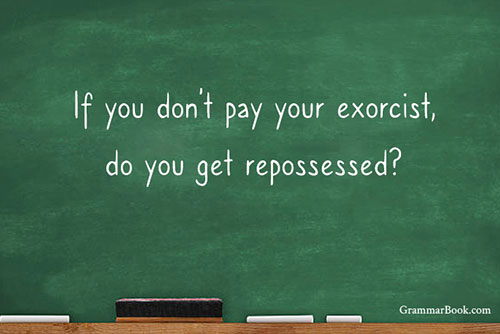|
We know that verbs are words that describe a mental or physical action, a state of being, or an occurrence. We also understand that they relate to a subject that is performing the action.
Examples
Riva writes stories.
Pietro mows the lawn.
Ijo laughed.
The rain fell. |
In each example, we have a subject noun (Riva, Pietro, Ijo, rain) with a verb (writes, mows, laughed, fell). Each verb also is either transitive (takes a direct object: writes, mows) or intransitive (does not take an indirect object: laughed, fell).
The subjects and objects in the examples are distinct in their function and order. In other words, we would not write sentences such as:
Stories write Riva. (transitive)
The lawn mows. (intransitive) |
What Are Ergative Pairs in English Grammar?
What if we have a verb that is both transitive and intransitive, and the object when the verb is transitive is the same as the subject when the verb is intransitive?
Example
He dropped the ball. (transitive; ball is the object)
The ball dropped. (intransitive; ball is the subject) |
The same verb functions with the same meaning for both a transitive object and an intransitive subject. Both sentences make sense.
When a verb can operate in this way, it is known as an ergative verb. Ergative verbs allow us to depict an action from the perspective of both the actor and the thing being acted upon. This ability places ergative verbs in their own particular category.
Here are more examples of ergative verbs:
Yoshiro dried the leaves. (transitive)
The leaves dried. (intransitive)
Shane roasted the potatoes in the oven. (transitive)
The potatoes roasted in the oven. (intransitive) |
Other ergative verbs include words such as:
| boil |
drive |
improve |
ring |
| break |
end |
increase |
run |
| catch |
fire |
melt |
sail |
| change |
freeze |
open |
shake |
| crack |
grow |
play |
tear |
Ergative verbs also can appear in passive constructions:
Yoshiro dried the leaves.
The leaves dried.
The leaves were dried by Yoshiro.
Shane roasted the potatoes.
The potatoes roasted.
The potatoes were roasted by Shane. |
The same verb means the same thing in each form of expression.
When to Use (and Not Use) Ergative Verbs
Some of these verbs can be ergative only with certain nouns. Consider the following sentence pairs:
Pietro played baseball.
The baseball played.
They fired their guns.
Their guns fired. |
You can see that one pair works with an ergative verb, and one does not.
Let's look at more examples:
I broke my arm.
My arm broke.
Shania broke her promise.
Her promise broke. |
Once again, we have one pair that works with an ergative verb and one that does not.
The verbs catch and ring are two others that can be ergative only with certain nouns.
Example Ergative
Seth caught his trousers on the nail. (transitive)
His trousers caught on the nail. (intransitive)
Example Not Ergative
Eshana caught a cold.
The cold caught.
Example Ergative
The headmaster rang the bell.
The bell rang.
Example Not Ergative
The dirt rang the tub.
The tub rang. |
If you use or come across a verb that can function clearly in an ergative way, you have discovered a distinctive word indeed.
Related Topics
Finding Nouns, Verbs, and Subjects
Subject-Verb Agreement
Linking Verbs: What Is a Linking Verb?
| 




